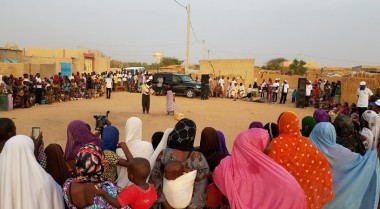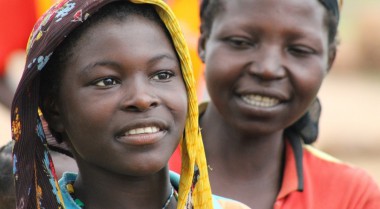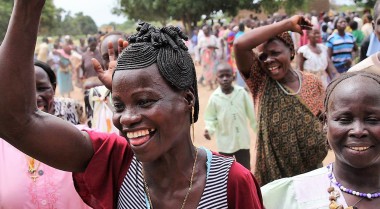
Prevention is Key to Ending State Conflict & Fragility
Conflict, violence and instability are troubling yet familiar phrases that continue to dominate media headlines. At the recent World Humanitarian Summit held last month in Istanbul, the take-home message for all international humanitarian emergencies was clear: we are living in a world that presents unprecedented challenges, and prevention is key. If we are to reduce the increasing numbers of protracted humanitarian crises caused by violent conflict, we must adopt a long-term view that focuses on addressing the sources and drivers of fragility and conflict.
The rapid spread of the Ebola crisis was argued to be not just a humanitarian issue, but also an issue of state (un)preparedness. Creating societal resilience in fragile states is, after all, crucial to avoiding a relapse into conflict or fragility.
Fragility manifests itself in many layers and forms in humanitarian crises, and is not limited to low-income countries. It includes violent extremism, urban violence, massive rural exodus, and health epidemics such as the recent Ebola crisis that struck in a number of West African countries in 2014. Sadly, all too often these situations are not viewed in the wider context of longer-term development challenges. The rapid spread of the Ebola crisis was argued to be not just a humanitarian issue, but also an issue of state (un)preparedness. Creating societal resilience in fragile states is, after all, crucial to avoiding a relapse into conflict or fragility.
At the heart of the solution is the International Dialogue on Peacebuilding and Statebuilding (IDPS). This initiative is backed by over 40 countries, multilateral bodies and civil society organizations, and aims to embed peace and development in fragile and conflict-affected states through bridging the gap between humanitarian and development actors. The IDPS commits to achieving this by advancing the UN Secretary General's Agenda for Humanity and the 2030 Agenda for Sustainable Development.
One of the IDPS's constituencies, the Civil Society Platform for Peacebuilding and Statebuilding (CSPPS), has worked with civil society organizations in Ebola-affected countries to publish a report discussing the appropriate response action to the crisis in the context of peacebuilding and statebuilding. The report documents lessons learnt in the process of Ebola response and the actual management of the Ebola outbreak in Guinea, Liberia and Sierra Leone, in relation to the New Deal principles and peacebuilding and statebuilding goals. The New Deal Principles promote the role of legitimate politics, security, justice, economic foundations, and state revenues and services as the bedrock of peaceful, stable states.
Sustainable peace can become a reality only if partnerships with all stakeholders are considered at all layers of society.
The recently adopted UN Security Council Resolution 2282 underscores this point. It speaks about inclusive national ownership, where local actors have a consistent voice and women and young people play a critical and strategic role in creating close partnerships with diverse stakeholders. Sustainable peace can become a reality only if partnerships with all stakeholders are considered at all layers of society.
Humanitarian aid alleviates suffering and saves lives affected by crisis. However, civil society organizations scantly report on the impact of their programmes. Civil society actors — specifically in countries plagued by conflicts and fragility — need to look to unusual sources of inspiration and relevance in order to adapt successfully in the face of a humanitarian crisis. On the back of the momentum from the World Humanitarian Summit, organizations involved in development or humanitarian aid must forge platforms for collaboration. All of us have a role to play in delivering the Agenda for Humanity. We must work together to secure peace so that no one is left behind.
By Mireille Kabasubabo and Peter van Sluijs.



